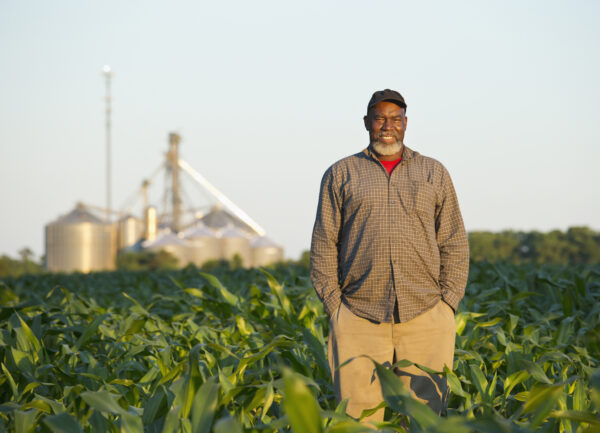There are just 1.4 percent of farmers identified as Black or mixed race compared with about 14 percent 100 years ago. Today, these farmers represent less than 0.5 percent of total U.S. farm sales, according to a new study done by McKinsey & Company.

McKinsey & Company is a management consulting firm that advises on strategic management to corporations, governments and other organizations. The company conducted the first study to quantify the present-day value of the monetary loss of land for Black farmers.
The study found that Black farmers in the United States lost a whopping $326 billion worth of acreage during the 20th century. And the $326 billion figure is a conservative estimate, the study authors pointed out. The study does not account for multiplier effects, like whether Black farmers could have used lost land as collateral to make other investments, Reuters reported.
Using data from the U.S. Department of Agriculture’s Census of Agriculture, the study calculated the compounded value of declining acreage owned by Blacks between 1920 and 1997 in the 17 states where almost all Black-owned farms were documented.
In 1910, Black farmers owned more than 16 million acres of land, according to experts. By 2017, Black-owned farmers owned just 4.7 million acres, about 0.5 percent of all farmland, according to the 2017 agricultural census (the most recent census).
This loss of land by Black farmers has exacerbated the growing racial wealth gap.
Farmers lost their land due to discriminatory USDA lending policies and forced sales of co-owned land called heirs’ property, among other factors, the study said.
“Wealth and land is one way in this country that you can grow opportunities for your family,” said Dania Francis, professor of economics at the University of Massachusetts-Boston and lead author of the study published on May 1, in the American Economic Association’s Papers and Proceedings journal.
“When huge groups of African Americans were denied that opportunity, it speaks to the intergenerational wealth gap that opened up in part due to this type of land loss,” Francis added.
Darrick Hamilton, an economics professor at The New School and another of the study’s authors, explained to Reuters, “This is not just theoretical, but this is empirical. These are real losses that occurred.”




